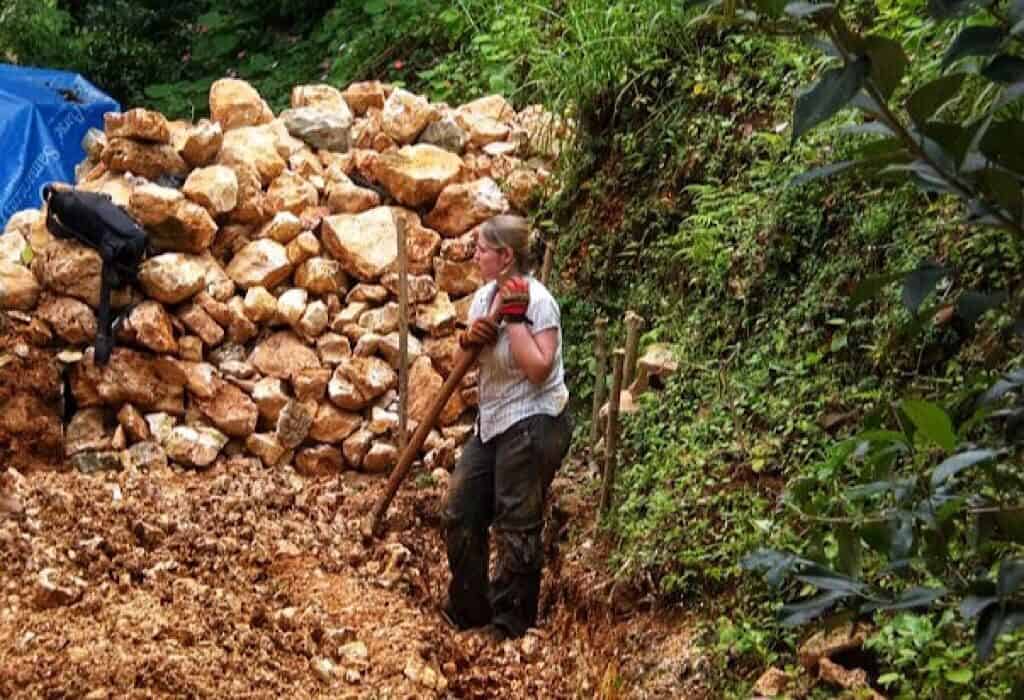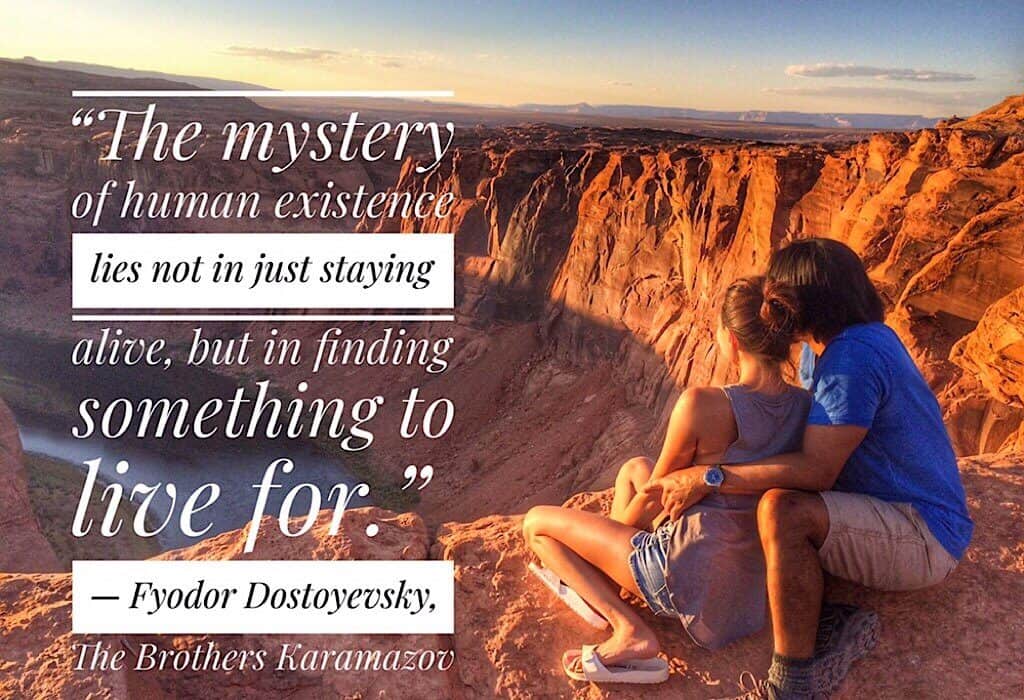Yesterday I sat with a group of about 24 people who are working towards Financial Independence. We went around the table and asked everyone why they are working towards financial independence. The overriding theme was freedom.
Some wanted the freedom to have a job that was meaningful to them, even if it paid little. Others wanted to volunteer. Some mentioned security against IT jobs that quickly change that people age out of. Others enjoyed the security of knowing that if they lost their jobs, they would be just fine. Others, like us, wanted to travel more. It all boiled down to freedom of choice, freedom from stress. The most common theme in our ChooseFI forum is the strive towards freedom, either from a job or just the freedom to pursue what they love best.
What if you don’t like numbers?
Does financial freedom sound tantalizing to you but you cannot stomach reading financial posts filled with numbers? Does having to watch the stock market, or sit down and look at a daily budget daily make you feel nauseous?
What if you hate numbers? Can you still be financially free? Yes, yes, you can still be free.
The most important part of the journey to financial freedom is our mindset. It starts by cultivating three things in our life.
Three Key Mindsets behind Financial Independence
You don’t have to love the numbers, because financial independence is far more about a frame of mind than it is crunching numbers. Someone can crunch numbers all day long and still not reach financial independence, while others having never crunched numbers have made it there.
1. The Mindset of Contentment
Contentment is a state of happiness and satisfaction, but is not devoid of the recognition of the need to change.
Contentment is not complacency
Complacency is an attitude of accepting things the way they are, even if making a change could improve circumstances. Complacency is not about satisfaction from life, instead, it is an attitude of giving up on any improvement.
Complacency makes us sit beside the road and watch life go by. Contentment is satisfaction within our journey as we strive towards greater things. This is a distinction.

What is contentment?
Gratefulness is the seat of contentment. It is a focus on the good things in our life, not the things we don’t have yet. Contentment is
It is also not looking at what others have and feeling jealousy or condemnation. Someone else brand new Tesla might be their mini-vacation that they get to take every day to work. Contentment looks at what you have, not what others have.
It should not overlook the things that need to change. There still needs to be an honesty about life not being perfect. Contentment is enjoying the journey of learning and growing on the path to achieving great things.
Contentment is knowing that we can
The path to financial independence is littered with achievements along the way. As we went around the room yesterday, each person talked about their journey. Most in the room were still on the path to financial independence.
One man sitting next to me talked about how he recently was three months without work. He said he really enjoyed those three months. Stress was minimal because he had enough savings to cover his expenses. He knew eventually that he would need to go back to work since he wasn’t fully financially independent yet, but he was far enough on the journey that it was already reducing stress in his life.
The role of discontement
Some argue that we should always be discontent if we want to achieve great things. Discontentment is a great driver of change. At some point(s) in our lives, it might be the catalyst for drastic changes. But do we really want to live a life driven by discontentment? Constant discontentment can cause us to abandon a journey because it has no joy along the way.
Contentment is a companion of joy in our journey of life. It allows us to focus on the things that need to change and glean joy along the way. It can keep us going for years on end.
What if I’m discontent now?
Discontentment doesn’t mean you are failing. Sometimes discontentment is
I struggled with discontentment for nine years during my first marriage. It was
Discontentment drove me to make one of the biggest steps I’ve ever made. I literally walked out on everything I knew, including my home and “friends.” It was exactly what I had to do at that point in my life.
Having broken free of that old life and all its entanglements, I found peace. Even sneaking into an empty office at work to sleep at night (because I was briefly homeless) was enough for me to be content. Sometimes we have to walk away from the things poisoning us. It was a drastic change, the journey was not easy, but I found peace in it.
Discontentment tells us to take a long hard look around and ask ourselves. Do I need to learn contentment or do I need to make a change? Only you can answer that question.
Pain is God’s megaphone to rouse us from the dream that all is well. -adaptation of C.S. Lewis in The Problem of Pain

Why contentment is so important
Contentment changes the frenetic striving for more into an exciting journey of purpose. “More” is like tomorrow. It never comes and is never enough. The path to financial independence is a journey. We may have an ultimate destination in mind, but it really is all about the journey.
How sad would it be to reach the goal of financial independence and arrive without friends or family because they were left behind in the pursuit? How lonely to cross a finish line and find that no one is rooting for you at the end.
When Trinity and I went to Iguazu Falls we absolutely loved the beauty of the falls, but I admit it was a little disappointing. The walk up to the falls was unremarkable, the journey was ordinary. On the other hand, hiking
Contentment allows us to focus on our purpose and not be discouraged along the way. Every step towards Torres del Paine was made to get us closer to our ultimate goal, but we
2. The Mindset of Giving
It may seem contrary, counterproductive even, to think of giving as part of the path to achieving financial independence. But I believe it is key to our mindset about money.
Contentment is rooted in
Money is only a tool. What is it that people truly want when striving towards saving a million dollars? It’s freedom, security, maybe even respect, love, or happiness. It’s not actually the money itself, it’s what that money can do.
Giving is how each of us can be a part of making our culture better which in turn impacts us directly.

What happens when we are not generous?
Our visit to Bolivia was
Many of the tour and bus drivers drive drunk. Many that we did business with cared only about getting money from the tourist. After the money was exchanged they cared little about customers actually getting anything for the money (Torotoro was the one place in Bolivia that was different, they truly understood preservation of natural beauty and treating others well). Because of this, they hurt their own business, they hurt their own country. People treated well come back. We don’t ever plan to go back to Bolivia.
I have to admit that I feel more generous to those who are generous to me. The waitress that cares about our experience and enjoyment is the one who gets the biggest tip. Yes, I know we should be generous to all around us, but this is human nature. It is fun to give to nice people. I strive to do business with kind individuals.
3. The Mindset Focused on Purpose
Last but probably the most important of these three is

How do you find purpose?
Many people often tie purpose into personal strengths and what they offer the world.
“Poll your friends and ask them what you are good at. What type of things would they come to you for help with?” Sylvia Moe Inks, one of the ChooseFI members at our meeting yesterday, asked these questions a few years ago. As a result, she started a successful agency for business owners. She even became the published author of Small Business Finance for the Busy Entrepreneur.
What do you want to be remembered for? What do you want on your gravestone?
Purpose is deeper than Goals
In my last job, we had a consulting agency that would do exactly as we asked. If we had given them specs to build a car and forgot to ask for a door they would have built the car without a door. They could check every box off on the goal list, but they didn’t think about the purpose of the car.
Checklists are a great tool in helping us achieve a goal, but it is important not to lose sight of the actual purpose for the goals.

For many, the purpose of saving money and achieving financial independence is freedom. It is a freedom that reduces stress and provides the opportunity to take risks that they otherwise could not have taken. It, therefore, doesn’t make any sense to add overwhelming stress trying to achieve an unsustainable savings rate on the journey to financial independence. There has to be a balance and the purpose must always be kept at the forefront.
Sacrifice may be necessary at times, but purpose makes that sacrifice feel like it is simply a down payment on a house.
It’s a Lifestyle
Some people can achieve financial independence by living a frugal lifestyle driven by a list of rules and meticulous tracking on spreadsheets. But how much better would it be to arrive at financial independence after a journey of contentment and a spirit of giving motivated by a life of purpose – a purpose that can be achieved even if financial independence is never realized?
Don’t get me wrong. I love my spreadsheets and frugality, but they should only be a tool in our journey focused on purpose.


I love this for so many reasons!
It is a bummer that the celebration of achieving FI cannot be appreciated by all.
I particularly love this line, “ But how much better would it be to arrive at financial independence after a journey of contentment and a spirit of giving motivated by a life of purpose – a purpose that can be achieved even if financial independence is never realized?” Um, yes x 1000
Thanks for the shout out! #GreatMinds
Thank you Deanna! Yes, I wish we could all celebrate together.
The journey thankfully doesn’t end at FI, it just gets better with every step. I’m glad to be in this journey with you.
Woohoo! Right on, sister 🙂
Love, love, love this blog. You are absolutely right on every point. I personally am on this journey towards FI. For me, the first thing is an emergency fund so that I don’t have to worry about “what might or might not” happen. No debt except for a car pymt, which is good. But love the part about contentment. That is different for each individual. Just wish that the “world” would talk more about this and money. Maybe there wouldn’t be so many suicides. If people could be taught what to do with money, then maybe, just maybe, they would be content. Giving is so important. Doesn’t matter who or what you give to but give. Even if it is just to pay for the coffee for the person behind you at your favorite coffee shop or drive through. What a thrill it brings to my heart to do that. And you may just make that person’s day as well. By giving, I think that it draws our minds away from wanting to “spend” and to seek to put away more money to be able to give more. And take “baby steps” in your journey to FI. Celebrate each and every little goal/baby step that you accomplish. It will help you stay focused. But you hit it on the nail about purpose. No matter what you do in life, whether to reach FI or something else, you must have a purpose or else you WILL fail. Keep the blogs coming and thank you for sharing about money/FI which the world doesn’t want to accept on social media.
Hi Jackie, I’m so happy to hear that you are on the path to FI, that emergency fund is so important and really does relieve a lot of stress. Thank you for taking the time to write out your thoughts. Next time I’m in your area I’m going to try and be the car behind you at the coffee shop and hope for free coffee. 🙂
Hahaha. You don’t have to be the car behind me at the coffee shop. I’ll buy you coffee any time! <3
I’m far enough along in the journey that my time is becoming worth more than money.
I’m thinking about scaling down work and going part-time next year. (Maybe the year after…)
That is awesome to hear, congratulations on the progress of your journey. Time is the greatest luxury. I’m finding that out more and more everyday.
Great post Bonnie! Well written.
Thank you!
Thanks for writing this. I frequently beat myself up if I do not meet my goals even though I know that I’m doing very well maybe because of my discontentment to what I have achieved. I always have this nagging feeling that it’s not enough and I just realised how unproductive and how unfair that action is to myself.
It’s is such a fine line sometimes between pushing ourselves more and beating ourselves up, but you are exactly right beating yourself up is unfair and unproductive. I’ve certainly done it to myself as well all too often. I try to remember where I was and where I am now. Good luck on your journey!
So many truth nuggets in this post (and I can’t wait to read all of your posts)! I especially am struck by your question, “Do I need to learn contentment or do I need to make a change?” So much of life comes down to this. We can’t jump to a new job or relationship every time we become unhappy with some aspect of life, but sometimes more than just an attitude shift is needed. Being able to discern the right times to rest contentedly versus the right times to make changes is a key life skill. Thanks for the insights!
Thank you for your encouraging comment. It is difficult at times to know if a change of attitude or circumstance is needed as you said and sometimes it’s a bit of both, it is very personal. Life can be so interesting and yet so beautiful.
I agree to all 100%, modestly and frugally but uninteresting, or perhaps with the struggle, but with the achievement of the goal. I choose the second option.
This post is amazing. I will tell about it to my friends and anybody that could be interested in this. Awesome information. Thank you for sharing.